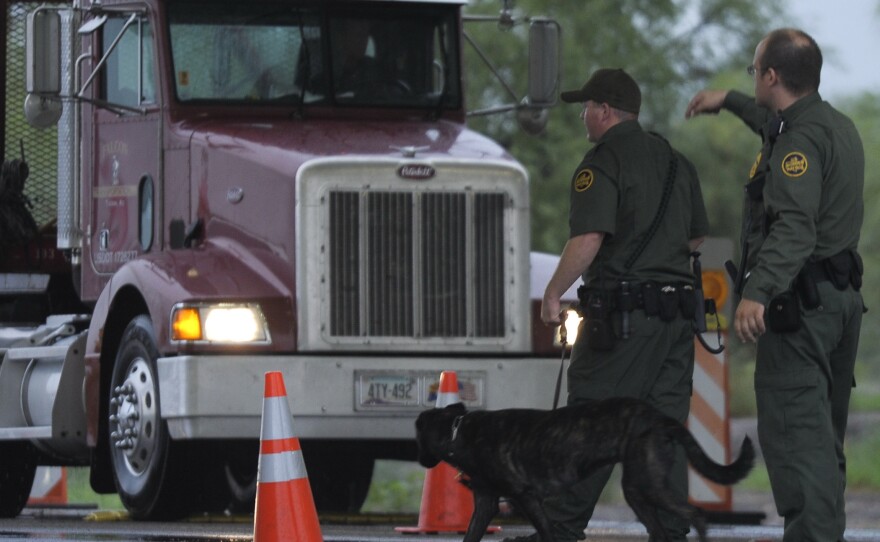
Budget-cutting from the government sequester that began March 1 could affect U.S. exports and imports, including what we eat.
Customs and Border Protection officers regulate trade at the nation's 329 ports of entry, in harbors, airports and on land.
One by one, drivers approach booths with Customs and Border Protection officers at the Mariposa Port of Entry in Nogales, Ariz. More winter produce enters here than at any other place in the U.S. Semis filled with tomatoes, cucumbers and peppers headed to grocery stores around the country.
"What goes on here is affecting people over the entire nation," says Lance Klump, chief CBP officer at the port.
Cargo from here also makes its way to Canada and Asia. Up to 1,600 trucks a day come through the port.
On a recent day, Klump says it's not that busy -- only a 45-minute wait for one of three open lanes. Like the grocery store, more lanes open or close depending on the wait. But Klump says they've never had to stop letting trucks enter.
"We have always been able to manage to continue processing," he says. "It may raise the wait times and everything, but we've always managed to do that."
With sequestration cuts in effect, though, port officials have to reduce costs. Local officials wouldn't confirm how that's supposed to happen, but Nogales produce importer Jaime Chamberlain has been talking with them. His company ships hundreds of millions of pounds of fresh fruit and vegetables every year.
"There's a very good possibility that we may lose hours during the week and also possibly crossing on Sundays," Chamberlain says.
Fruits and vegetables don't stop growing; they have to be picked every day. So imagine what happens to produce in loaded trucks backed up at the border.
"It'll rot," he says. "It'll rot in our trucks waiting to cross the line."
Lost produce means higher prices for what does get to U.S. markets. Chamberlain says it also jeopardizes relationships in Canada and Asia.
"We are at risk right now of not only not maintaining the business that we already have right now with some of the countries we do business with, but losing the business," he says.
Again, it's not yet clear exactly what will happen to ports of entry under sequestration. Colleen Kelley has some idea, though. She heads the union that represents Customs and Border Protection officers.
"The agency has notified us that employees will be serving up to 14 unpaid furlough days between now and the end of September," she says.
Kelley's been told to expect the first furlough notices in the middle of March. The furloughs would start 30 days later.
That's only personnel. Agencies have to cut across the board.
However, it's likely one thing won't be sacrificed: security. Even if only one lane is open, every truck will pass through radiation detectors. Officers also watch for explosives and drugs.
"We're going to stop everything that we possibly can for contraband or threats to the United States here," chief officer Klump says.
In an odd twist, the Mariposa Port is in the midst of a $250 million upgrade to add lanes and streamline operations. At the same time, there may not be enough personnel to staff the new lanes.
Copyright 2013 NPR. To see more, visit www.npr.org.






